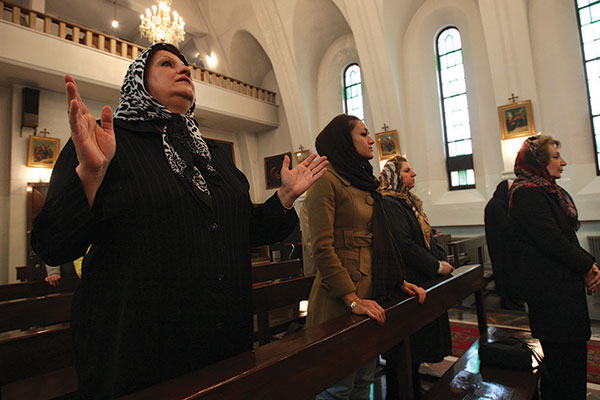
“Like a dead man, I am forgotten in their thoughts — like broken pottery.”
There has been much attention paid to the plight of Christians in places like Syria, Iraq and Pakistan. Story after story has been told of atrocities against these people solely because of their faith. There is one group, however, from whom we seldom hear.
Those are the Christians of Iran. Fortunately, there are a few people who have been able to give voice to that forgotten group.
When one thinks of Iran, one’s thoughts immediately turn to the mullahs. As a country, many think of Iran as a monolithic radical country who all think alike, act alike and all hate the West. In truth, if the mullahs were ever to take their foot off the neck of their people, millions of Muslims would convert to Christianity as they have had enough of oppression and violence from their religious leaders and have seen the oppression that comes with Islam.
The “everyman” in Iran is not nearly as anti-Western as one would be made to believe, at least when the cameras are off and they are in the privacy of their homes and “away from the craziness” as one former Iranian has said. Many Iranians were happy when the revolution came because of the abuses of the Shah, but quickly became disillusioned and longed for some sanity.
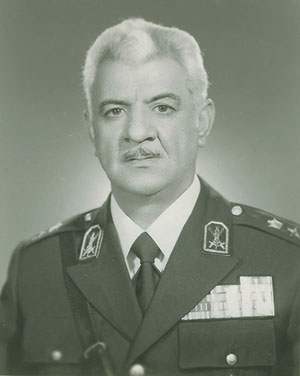
Mojgan Rezai’s father was one of them.
Mojgan’s (or Moji as she is called) father was General Khalil Rezai, a member of the Shah’s army.
Moji described him this way:
My dad was a man of honor. During the revolution, they tried to find something against him, because he was in the Shah’s army, but they failed. His spotless reputation was exemplary. He was in charge of Tehran’s prison factory at the time of revolution and everyone loved my dad. That was the kind of man he was. He was a true man of God. He taught us kindness, integrity, honesty and respect for all. He respected everyone and treated everyone the same, no matter which side of the bars they were on.
General Rezai was the warden at Iran’s main prison facility. The prison held civilians, but was run by the military. To earn their keep, the prisoners were farmed out to local businesses at bargain-basement prices. Sometimes, the business owners would get prison labor at cut-rate prices by paying the local warden a bribe. This was something General Rezai refused to do. He also refused to steal the prisoner’s rations to enrich themselves. Because of his personal integrity, when the time came, his kindness to the men under his charge was repaid with equal measure.
The Iranian Revolution
Many people have the mistaken belief that the Shah of Iran left the country, the Ayatollah Khomeini arrived in Iran and the Islamic Republic of Iran was founded. That is not quite how things went.
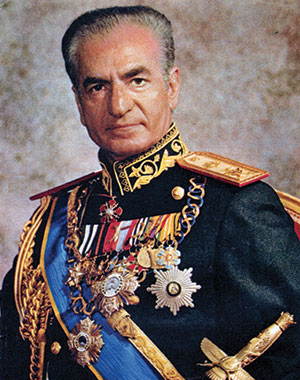
For a bit of background, Mohammad Reza Shah Pahlavi (1919–80) reigned as the king (shah) of Iran from 1941 to 1979. The Shah was viewed as a strong ally to the West, but as Moji relates, many viewed him (and his father before him) as trying to westernize the country too quickly. For an example, Moji said that the government would have men stationed on top of buildings watching the people walking down the street. If a woman was viewed wearing a hijab (head covering), they would force her to remove the hijab and replace it with a hat. This type of behavior would obviously upset many people, especially those who took their Muslim faith seriously.
Many in the country also resented the Shah’s secret police, the hated SAVAK. Therefore, in spite of a strong economy and a growing middle class, the country was on the brink of civil war.
The opposition was led by Ayatollah Ruhollah Khomeini, who lived in exile in France. His revolutionary messages were distributed through tape cassettes smuggled into the country by Iranian pilgrims returning from the holy city of Najaf. On them, he preached disdain for what he called “gharbzadegi” (the plague of Western culture). The tapes came into Iran in small numbers, then duplicated and spread throughout the country.
As discontent grew, the Shah saw his regime begin to crumble. At the end of 1978, Shapour Bakhtiar, a critic of the Shah, was chosen to help in the creation of a civilian government to replace the existing military one. He was appointed to the position of prime minister by the Shah as a concession to his opponents, especially the followers of the Ayatollah. His acceptance of the position was viewed by many as collaboration with the military regime and he was expelled from his National Front party.
Bakhtiar ordered all political prisoners to be freed, lifted censorship of newspapers (whose staff had until then been on strike), relaxed martial law, ordered the dissolving of SAVAK (the regime’s secret police) and requested that the opposition give him three months to hold elections for a constituent assembly that would decide the fate of the monarchy and determine the future form of government for Iran.
His government lasted only 36 days.
Ayatollah Khomeini refused to cooperate with Bakhtiar, called him a traitor and labeled his government “illegitimate.” Khomeini then called for the overthrow of the Monarchy. Eventually, the Shah was forced to leave the country in January 1979 and Bakhtiar left Iran for France in April of the same year. (The Shah was to die of cancer in the United States in 1980 and Bakhtiar was assassinated in Paris in 1991).
The United States as Midwife
In the United States, President Jimmy Carter viewed the changes in the country optimistically. He saw the fall of the Shah and the rise of the Ayatollah as a victory for democracy. He viewed Khomeini as one of the “People of the Book” who had the same basic values as he did and was a man of peace.
Carter perceived Khomeini as a religious holy man in a grassroots revolution rather than the founding father of modern terrorism. Carter’s ambassador to the United Nations, Andrew Young, said “Khomeini will eventually be hailed as a saint.” Carter’s Iranian ambassador, William Sullivan, said, “Khomeini is a Gandhi-like figure.” Carter adviser James Bill proclaimed Feb. 12, 1979 that Khomeini was not a mad mujahid, but a man of “impeccable integrity and honesty.” Carter did not understand at the time Khomeini was an Islamic revolutionary. Ayatollah Khomeini could never have succeeded without the help of Jimmy Carter.
The Islamic Revolution would have been stillborn.
The Madness
After Bakhtiar left the country, his worst fears were realized: radical Islamic mullahs led by the Ayatollah Khomeini seized control of the country. It was then the pogrom against the supporters of the Shah began and people were executed by the hundreds.
Moji described this time:
During all this madness, the guards at the prison opened the gates and let all the prisoners out. While the Revolutionary Guard were going through the streets executing any man in the Shah’s army they could find, the prisoners gathered around my parent’s house and protected my mother and father against any harm.

On April 1, after a landslide victory in a national referendum in which only one choice was offered (Islamic Republic: Yes or No), Ayatollah Khomeini declared an Islamic republic with a new Constitution reflecting his ideals of Islamic government.
Ayatollah Khomeini became the supreme spiritual leader (Valy-e-Faqih) of Iran. Subsequently many demonstrations were held in protest to the new rules, including Sharia Law.
The Hostage Crisis
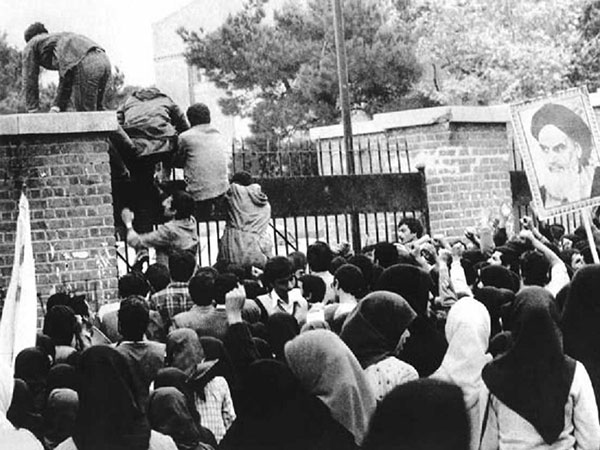
On Nov. 4, the Iranian Islamic Students Union stormed the U.S. Embassy, taking 90 people hostage, including 66 Americans. That same month, the Islamic Republic’s first Prime Minister Mehdi Bazargan resigned.
With the mullahs saying there was nothing they could do, the “students” were in complete control.
The crisis would continue for the rest of Jimmy Carter’s presidency and define his term of office. As a final insult, the hostages would eventually be released five minutes after Ronald Reagan was sworn in as Jimmy Carter’s replacement as President of the United States.
Christians in Iran Today
After the revolution, the now former General Rezai wanted to retire to a quiet life, but the Revolutionary Guard would not allow it. He had such a reputation for honesty that they “asked” him to stay on in the new government and work in the treasury. So Khalil went to work in the Treasury Department and his wife Setare took Moji to Kentucky to live with her older brother. Setare returned to Iran three months later and rejoined her husband to care for another son who had significant health issues. (He has since gone to be with the Lord.) Moji’s parents would have stayed in Iran even if they had not had to care for their child. They loved their country, but hated to see what had become of it. Moji and her brother both believe their parents died of broken hearts.
Moji’s brother and his American-born wife have returned to Iran and have a farm on the Caspian Sea away from the “craziness” and live a quiet life. Moji goes to see them every couple of years. She loves to see them and loves the country. Iran is a beautiful country and the people are warm and open.
Underlying all of this, however, is a certain sadness.
The Dark Underside
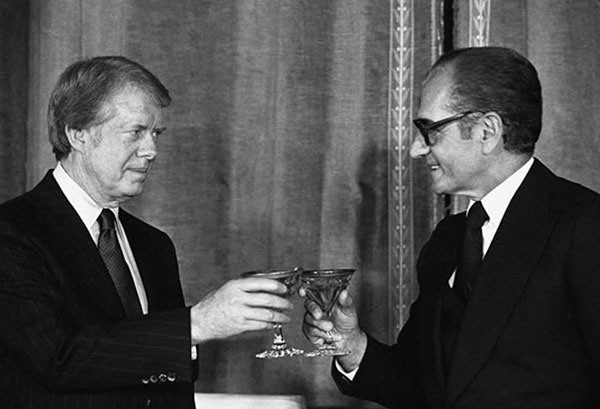
The Iranian attitude toward religion can seem contradictory — very chaste in public but much less so in private. Moji said there is a famous picture of President Carter toasting the Shah of Iran. Reminiscent of that picture, there is a saying in Iran that goes, “There was a time we drank in public and prayed in private. Now we pray in public and drink in private.”
The courts have the right to impose the death sentence on male apostates and life imprisonment for female apostates. Effectively, Iran is a religious dictatorship where little of consequence can occur without the approval of the Guardian Council of Mullahs.
So it is ironic that those same Islamic Revolutionary Guardsmen who chant “Death to America, Death to Israel” and enforce Sharia Law by day, will also procure for you any kind of liquor by night. It seems that Christians do not have a corner on the hypocrisy market.
The hypocrisy also does not stop at such trivialities like liquor.
Religious Freedom?
The Iranian Constitution specifically grants religious freedom to non-Muslim sects. According to the English translation of the Farsi text:
Article 13
Zoroastrian, Jewish, and Christian Iranians are the only recognized religious minorities, who, within the limits of the law, are free to perform their religious rites and ceremonies, and to act according to their own canon in matters of personal affairs and religious education.Article 14
In accordance with the sacred verse; (“God does not forbid you to deal kindly and justly with those who have not fought against you because of your religion and who have not expelled you from your homes” [Sura 60:8]), the government of the Islamic Republic of Iran and all Muslims are duty-bound to treat non-Muslims in conformity with ethical norms and the principles of Islamic justice and equity, and to respect their human rights. This principle applies to all who refrain from engaging in conspiracy or activity against Islam and the Islamic Republic of Iran.
Despite these strictures, Christians continue to be persecuted because of their beliefs. Some face severe physical and psychological torture while they are imprisoned. Christians who hold home prayer meetings and Bible studies, or are in contact with Christians outside of Iran are accused of threatening the national security of Iran. These Christians have been issued long prison sentences and have been subject to physical abuse. Churches have been pressured into ceasing all services or activities in their native language of Persian (Farsi), or are closed down. Property belonging to Christians is seized and Christians face discrimination in the workplace and in educational institutions.
Religious persecution of certain minorities has intensified in recent years. This is aimed at the Baha’i, Sufi Muslims and Christians, especially believers from a Muslim background. Almost all Christian activity is illegal, especially when it occurs in Persian languages — from evangelism to Bible training to publishing Scripture and Christian books. Yet the regime’s harsh treatment of Christians only further fuels the flames of church growth.
On May 22, 2010, Maryam Rustampoor and Marzieh Amirizadeh — Iranian believers imprisoned for their Christian activities in March 2009 — were acquitted of all charges. The women fled the same day due to a warning from the Iranian judicial authorities that any future Christian activities would have severe consequences.
In December 2010, Iran began arresting dozens of Christians in a crackdown. The governor of Tehran province, Morteza Tamadon, described Protestants and evangelicals as “corrupt and deviant” and accused them of conducting an “enemy cultural invasion.”
During his election campaign, Iranian President Hassan Rouhani made a number of promises regarding religious freedom in Iran. He was quoted as saying April 11, 2013:
All Iranian people should feel there is justice. Justice means equal opportunity. All ethnicities, all religions, even religious minorities, must feel justice.
Iranian Christians are still waiting for Rouhani to make good on his promise.
Some Iran observers believe the Iranian government is taking a hard line against Christians because they are making converts among the Muslim population in the country. According to Sadeq Saba, Editor BBC Persian, in a Dec. 2, 2014, interview:
One man was arrested because, as far as the authorities were concerned, his social media activities went too far in questioning some of the tenets of Islam and now he has been sentenced to death. This is a dangerous trend. I hear from some people the reason the regime is taking such a tough line against people like him is because a lot of people are becoming disappointed with Islam as a religion because of what the regime is doing. People are converting to Christianity — this is becoming very dangerous for the regime. The harsh sentences are a way of controlling the situation.
Some observers believe even if President Rouhani should want to improve religious freedom in Iran, the mullahs will not allow it.
A Voice of Clarity
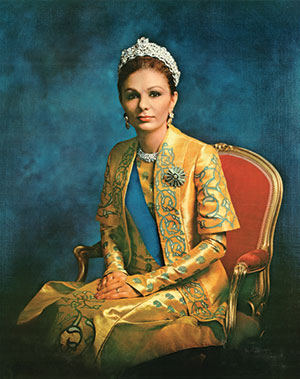
In the 1980s, the widow of the Shah of Iran, the former Empress Farah Pahlavi said something extremely interesting. During an interview, she spoke of former President Carter’s human rights issue:
What happened to those who cared so much for human rights? Why when the Shah left, didn’t the Iranian people have any rights anymore? What happened to the women?… There is oppression which exists in the name of religion in Iran. What happened to those who cared?
Pray that for mankind’s part, the questions Mrs. Pahlavi asked 40 years ago are not left unanswered. We know, however, for God’s part, her questions have already been answered.
Then they cried out to the Lord in their trouble, and he delivered them from their distress.





